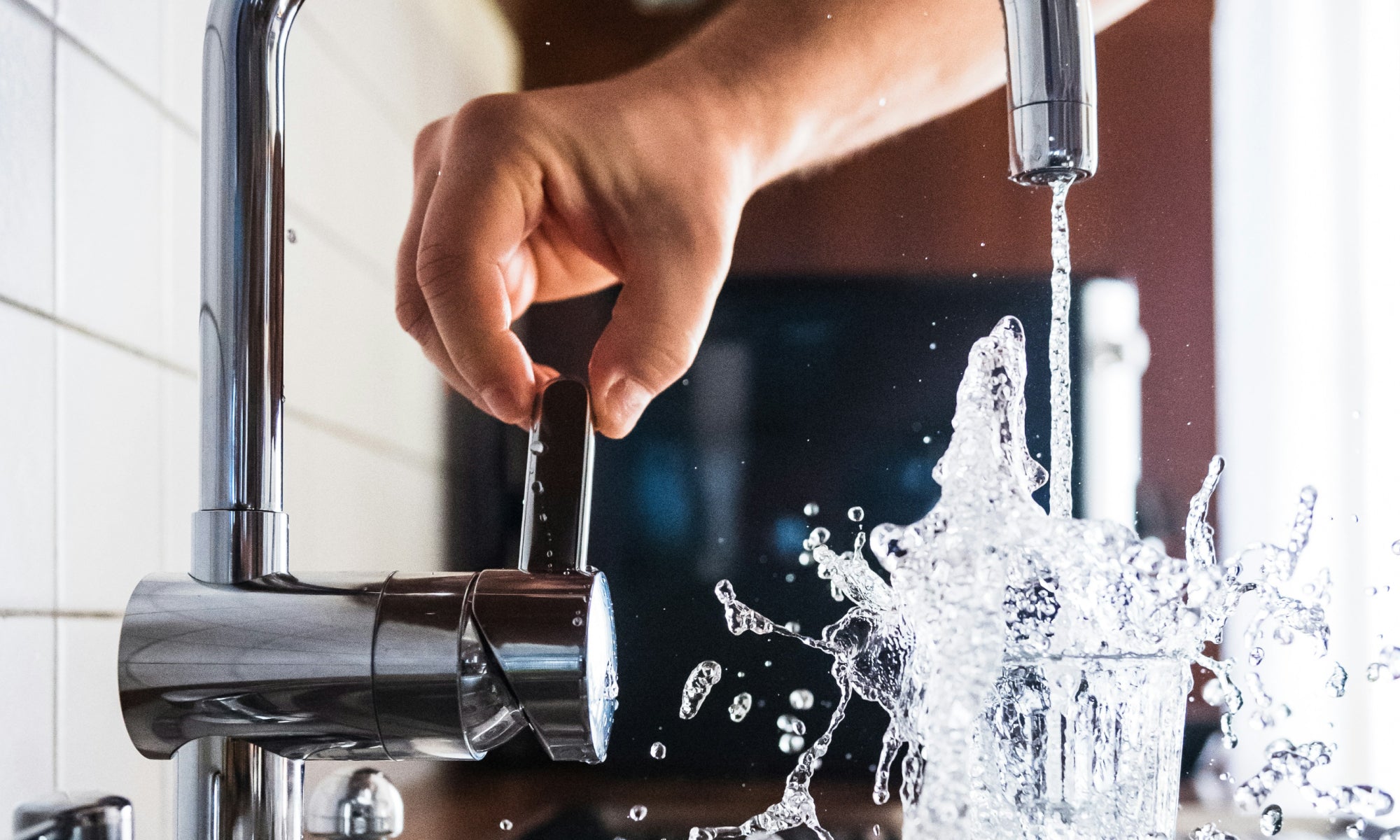If you’ve ever noticed white buildup on your faucets, soap that doesn’t lather well, or itchy skin after a shower, there’s a good chance you’re dealing with hard water. But what exactly is hard water—and is soft water really better?
In this post, we’ll break down the difference between hard and soft water, how each affects your home and health, and what you can do to treat it. Spoiler: your appliances, skin, and budget will all thank you.
A Story You Might Relate To
After moving into their first home in Colorado, a young couple started noticing problems they didn’t expect. Their dishes came out of the dishwasher cloudy, their skin felt dry after every shower, and their water heater stopped working after just two years. A local plumber tested their water and found it had high hardness levels. They installed a whole house water softener, and the difference was immediate: cleaner dishes, smoother skin, and lower utility bills.
What Is Hard Water?
Hard water is water that contains high levels of dissolved minerals—mainly calcium and magnesium. These minerals come from underground sources as water moves through soil and rock.
The higher the concentration of these minerals, the “harder” your water is. Most homes in the U.S. have some level of hard water.
What Is Soft Water?
Soft water, by contrast, is water with very low levels of calcium and magnesium. Naturally soft water is rare, so most soft water in homes comes from systems that remove or neutralize the hardness minerals.
Soft water feels slicker on your skin, doesn’t leave spots on dishes, and is gentler on plumbing and appliances.
Hard Water vs. Soft Water: Key Differences
| Feature | Hard Water | Soft Water |
|---|---|---|
| Mineral Content | High in calcium and magnesium | Low or none |
| Soap and Detergent Use | Requires more to lather | Lathers easily with less soap |
| Skin and Hair | Can cause dryness and buildup | Leaves skin and hair feeling smoother |
| Plumbing and Appliances | Causes scale buildup and clogs | Extends lifespan of plumbing and machines |
| Laundry | Fades clothes faster | Clothes last longer and feel softer |
| Cleaning | Leaves spots and soap scum | Reduces spots and buildup |
Signs You Might Have Hard Water
-
Soap doesn’t lather easily
-
White spots on glassware and fixtures
-
Itchy skin or dull hair after bathing
-
Low water pressure from scale buildup
-
Frequent appliance repairs or short lifespans
-
Faded or rough laundry
How to Test for Hard Water
You can test your water in a few ways:
1. DIY Soap Test: Fill a bottle halfway with water, add a few drops of dish soap, and shake. If it doesn’t lather much, your water is likely hard.
2. Water Hardness Strips: Affordable and easy to use. Dip a strip in water and match the color to a chart.
3. Professional Lab Testing: For more accurate results, especially if you're also concerned about other contaminants.
What Are the Effects of Hard Water?
On Your Home:
-
Scale buildup in pipes and water heaters
-
Higher energy bills due to reduced efficiency
-
Shortened lifespan of appliances like dishwashers and washing machines
On Your Health and Skin:
-
Dry, itchy skin and scalp
-
Soap residue on skin and hair
-
Exacerbated skin conditions like eczema
On Your Wallet:
-
More money spent on soap, shampoo, and cleaning products
-
Frequent repairs and premature replacement of appliances
-
Higher heating costs from inefficient water heaters
Water Softening Solutions That Work
- TrulySoft Water Softeners
Our TrulySoft systems use salt-based ion exchange to remove hardness minerals from your water. They're ideal for families dealing with noticeable buildup, dry skin, or short appliance lifespans.
- Salt-Free Water Conditioners
Salt-free systems help reduce scale and buildup without adding sodium. A great option for areas with mild to moderate hardness or homeowners who prefer low-maintenance alternatives.
- Sediment and Pre-Filters
These filters trap rust, sand, and larger particles that often accompany hard water. Use them as the first stage of a full softening system.
FAQ: Hard Water vs. Soft Water
Is hard water bad for your health?
Not usually harmful to drink, but it can be harsh on skin and hair.
Does soft water taste different?
Some people notice a slightly different taste, especially if the system adds sodium. It’s safe to drink and often preferred for coffee, tea, and cooking.
Can I use both softening and filtration?
Yes! Many households use a water softener with a reverse osmosis system under the sink for optimal taste and purity.
What if I’m on a well?
Well water is often hard and may contain iron or sulfur. A water test will help determine what combination of systems you need.
Your Water Should Work for You, Not Against You
Hard water isn’t just annoying; it can cost you money and wear down your home over time. The good news? You have solutions.
At Reverse Osmosis Superstore, we offer water softening systems that match your needs and your budget. Whether you want salt-based softening, salt-free conditioning, or a full filtration combo, we can help.
Call us today and let’s fix your water, for good.




